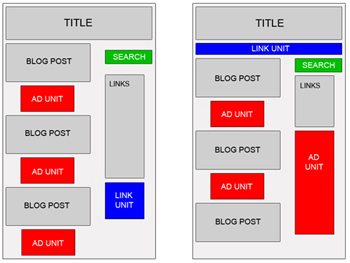Anyone with good content (and lots of it) can benefit from Google AdSense
Size, in terms of traffic or the number of site pages, doesn’t really matter as to whether a publisher can, or should, become a Google AdSense partner. Quality content is the defining feature. In fact, the program is a great opportunity for publishers with quality content, but limited or light traffic and/or few site pages.
Some publishers may be concerned about losing traffic by having a link to someone else’s website even though they make a few cents or a dollar for every click. Because what publisher spends all of their time attracting users, just to send them away? The reality is, to many publishers’ surprise, traffic still increases and users spend just as much (if not more) time on the site. Some users may go away, but they usually come back and explore a little more. To top it off, the publishers are making a little money.
Google encourages any publisher to try AdSense, and since it’s free with no contracts or obligations, there’s no reason why a publisher should ignore the potential. You simply sign up, use their very simple ad wizard, grab the code they give you, and implement it on your page. Google says you should “watch it work and compare it to other revenue alternatives. In most cases, publishers have found that Google AdSense exceeds the revenue that they can earn through any other source, and they opt to keep us on.”
[text_ad]
One reason why an otherwise qualified publisher might not want to participate is purely philosophical: The publisher may want the site—or certain pages of the site—to be completely ad-free. Google believes that AdSense has the best type of advertising to support content-heavy sites, and we agree.
To understand the divisions and help determine ad placement on the various pages, first prepare a conception model of the site. 
- Is the site small and homogeneous, with the same kind of content and design throughout?
- Or is it more general and heterogeneous, with many different kinds of content and various designs?
A newspaper site’s sports section, for example, might have a large photo in the middle of the page, while general news may be text-heavy and the classified section might have only listings. A publisher will want to treat each section differently and track each individually.
Meanwhile, don’t think you’ll get away with any tricks, such as artificially incorporating
keywords into the text to generate more sales or leads. Google has something called “smart pricing,” which is a ranking system that can detect that kind of thing—and resulting in your page being selected less frequently by the system.
Your best bet on mastering Google AdSense is to create good content. With good content comes more page views, and with more page views comes more of everything else.


